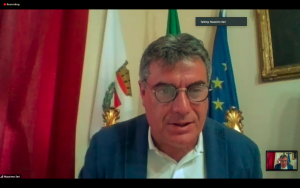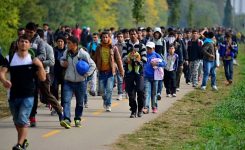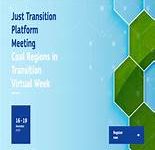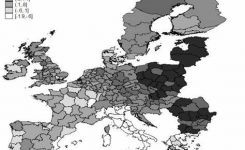Notizie
webinar Aiccre 3 giugno, Seri: occorre grande alleanza dei territori

La pandemia ha dimostrato che siamo tutti vulnerabili, paesi ricchi e meno ricchi, popolazioni più attrezzate e meno attrezzate. Siamo stati messi tutti a dura prova, nessuno era preparato ad affrontare questa situazione. Ma c’è un’altra consapevolezza: le emergenze purtroppo si ripresenteranno. Se guardiamo alle nostre spalle sono state cicliche, diverse tra loro. Quindi dobbiamo attrezzarci, ripensare alle nostre città, ai nostri territori, alle nostre organizzazioni. Da Sindaco che ha vissuto in prima linea questa emergenza, posso dire che ci siamo trovati e ci troviamo a ragionare su tre aspetti.
Uno è stato quello dell’immediatezza, cioè l’obbligo di dare delle risposte alla popolazione che chiedeva aiuto, indirizzi e strumenti, a cominciare dall’assistenza sanitaria, non solo quella ospedaliera, ma anche quella domiciliare. Occorreva poi organizzare e recuperare quei gap che si erano creati: aiuti alla popolazione, a quella parte più fragile, alle persone sole, a quelle ammalate, alle famiglie che avevano dei disagi all’interno della casa. Ripensare all’organizzazione di coloro, quasi tutti, che erano costretti a rimanere in casa, pensare ai più piccoli, a quali risposte e quali aiuti per evitare traumi da clausura, ma soprattutto creare quella rete, quell’alleanza, anche all’interno dei territori coinvolgendo i volontari e le associazioni per organizzare servizi.
Altra cosa: anche nelle città sono emerse le disuguaglianze tra le persone.
C’è il medio termine, quella che noi chiamiamo la fase 2, la ripartenza, la crisi economica, le difficoltà economiche e finanziare degli enti locali e poi c’è il nuovo periodo, le grandi strategie (anche nuove strategie) alla luce di questa esperienza. Quindi migliorare e ripensare l’organizzazione delle nostre città e il perno deve sempre rimanere l’Agenda 2030 con gli SDGs sulla quale stavamo lavorando e dobbiamo continuare a lavorare, ma pensando anche a quell’esperienza e alle conseguenze che sono arrivate, rimettendoci in discussione e rinnovandoci anche. E l’elemento PENSARE GLOBALE E AGIRE LOCALE è importante. Il ruolo degli enti locali è straordinariamente importante: tutte le grandi strategie se non trovano il coinvolgimento pratico dei territori non raggiungono il loro obiettivo.
Lo abbiamo visto anche nella nostra esperienza legata alla pandemia: fortunatamente gli enti locali in Italia sono efficienti, hanno avuto la capacità di reagire immediatamente e la condivisione delle politiche tra Governo, tra Stato, Regioni e Comuni ha funzionato e, fortunatamente, con l’efficienza dei Comuni, si è riusciti a dare risposte importanti. Però diventa sempre più fondamentale trovare questa alleanza, la cooperazione internazionale dove i Comuni, i territori, le città devono essere protagoniste. Questo non è riconosciuto anche se si stanno facendo dei passi in avanti; per esempio il Governo italiano sta stanziando fondi, coinvolgendo i Comuni sulla cooperazione internazionale.
Mi viene da dire che, alcune volte, i comuni sono oltre, anche da soli; per quello che riguarda la mia città, Fano, nel momento peggiore della pandemia ho avuto un aiuto da città tedesche importanti come Wolfsburg e Rastatt che hanno collaborato e ci hanno anche concretamente aiutato con strumenti che non avevamo a disposizione.
Questo sta a significare che i governi locali hanno la capacità di dare risposte anche quando quelle dei Governi arrivano in ritardo e non sono immediatamente disponibili.
Gli Enti locali hanno dimostrato di saper cooperare anche quando non c’è una regia di alto livello. Per quanto concerne l’inclusione mi vien da dire che sono le città sicure ad essere quelle più inclusive. Sono quelle dove si creano pari opportunità, dove non allarghiamo le disuguaglianze che non sono solo economiche, ma sono di vario tipo, come il diritto allo studio. Anche nelle città più sviluppate si sono create queste situazioni. L’evoluzione è la spinta verso la digitalizzazione che può essere uno strumento.
Allora anche i fondi per la cooperazione che possano essere diretti in modo che possano essere velocemente utilizzati, ma soprattutto in misura mirata.
Le città e i territori possono fare l’operazione culturale direttamente con i loro cittadini, riuscire a penetrare anche nelle coscienze se vogliamo inclusione, pari opportunità, diritti, e tutelare il bene più prezioso che è il nostro pianeta.
La crisi, insomma ( e ce lo dice anche il termine greco) è una grande opportunità. Bisogna aver la capacità di saper cogliere il cambiamento, quali sono i nuovi bisogni, ma soprattutto sono grandi occasioni sperimentare anche nuovi percorsi.
Partendo anche da questi momenti, proviamo nuove sperimentazioni a cominciare da una grande alleanza dei territori anche in termini di cooperazione internazionale.
The pandemic has shown that we are all vulnerable, richer and less rich countries, better equipped and less equipped populations. We have all been put to the test, nobody was prepared for this situation. But there is another awareness: emergencies will unfortunately come again. If we look behind us, they have been cyclical, different. So we must equip ourselves, rethink our cities, our territories, our organisations. As a Mayor who has experienced this emergency on the front line, I can say that we have found ourselves and we find ourselves thinking about three aspects.
One was that of immediacy, that is the obligation to give answers to the population that was asking for help, addresses and tools, starting with health care, not only hospital care, but also home care. It was then necessary to organize and recover those gaps that had been created: aid to the population, to the most fragile part of the population, to the lonely people, to those who were sick, to families who had problems at home. To think about the organization of those, almost all of them, who were forced to stay at home, to think about the little ones, what answers and what help to avoid cloistered trauma, but above all to create that network, that alliance, even within the territories by involving volunteers and associations to organize services.
Another thing: even in the cities, inequalities between people have emerged.
There is the medium term, what we call phase 2, the restart, the economic crisis, the economic and financial difficulties of local authorities and then there is the new period, the great strategies (also new strategies) in the light of this experience. So improving and rethinking the organization of our cities and the pivot must always remain the Agenda 2030 with the SDGs on which we were working and we must continue to work, but also thinking about that experience and the consequences that have come, questioning and renewing ourselves also. And the element of GLOBAL THINK AND LOCAL ACT is important. The role of local authorities is extraordinarily important: all the great strategies if they do not find the practical involvement of the territories do not reach their goal.
We have seen this also in our experience linked to the pandemic: fortunately local authorities in Italy are efficient, they have had the ability to react immediately and the sharing of policies between Government, between State, Regions and Municipalities has worked and, fortunately, with the efficiency of Municipalities, we have been able to give important answers. But it is becoming more and more fundamental to find this alliance, the international cooperation where the Municipalities, the territories, the cities must be protagonists. This is not recognized even if some progress is being made; for example the Italian Government is allocating funds, involving the municipalities on international cooperation.
I have to say that, sometimes, the municipalities are beyond, even alone; as far as my city, Fano, is concerned, in the worst moment of the pandemic I had help from important German cities such as Wolfsburg and Rastatt who collaborated and also concretely helped us with tools that we did not have available.
This means that local governments have the ability to give answers even when those of governments arrive late and are not immediately available.
Local governments have shown that they know how to cooperate even when there is no high-level direction. As far as inclusion is concerned, I have to say that it is the safe cities that are the most inclusive. They are those where equal opportunities are created, where we do not widen inequalities that are not only economic, but are of various kinds, such as the right to study. Even in the most developed cities these situations have been created. Evolution is the push towards digitization that can be a tool.
Then also the funds for cooperation that can be directed so that they can be used quickly, but above all in a targeted manner.
Cities and territories can do the cultural operation directly with their citizens, they can also be able to penetrate consciences if we want inclusion, equal opportunities, rights, and protect the most precious good that is our planet.
The crisis, in short (and the Greek term also tells us so) is a great opportunity. We need to be able to grasp the change, what the new needs are, but above all they are great opportunities to experience new paths.
Starting also from these moments, we try new experimentations starting from a great alliance of territories also in terms of international cooperation.







